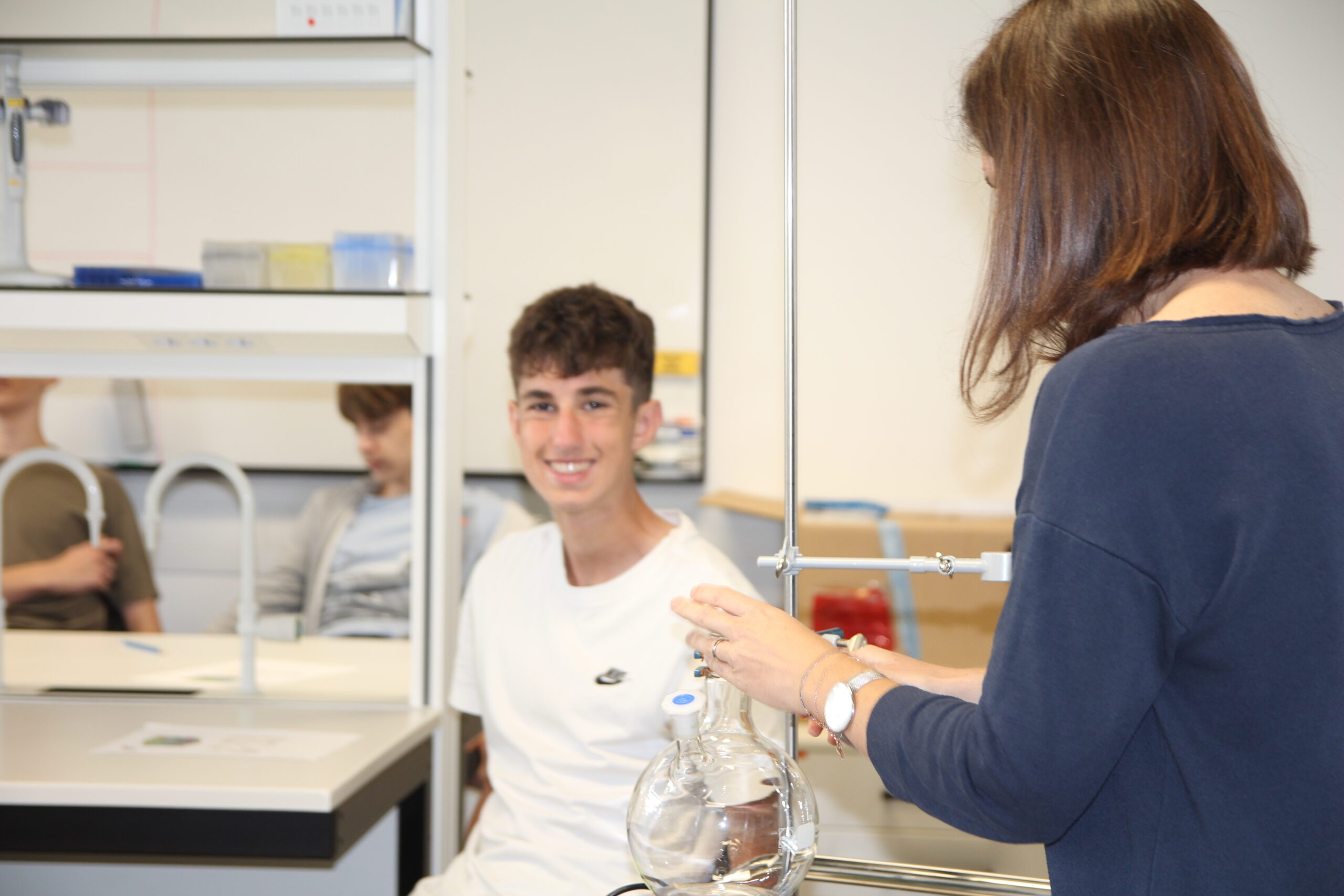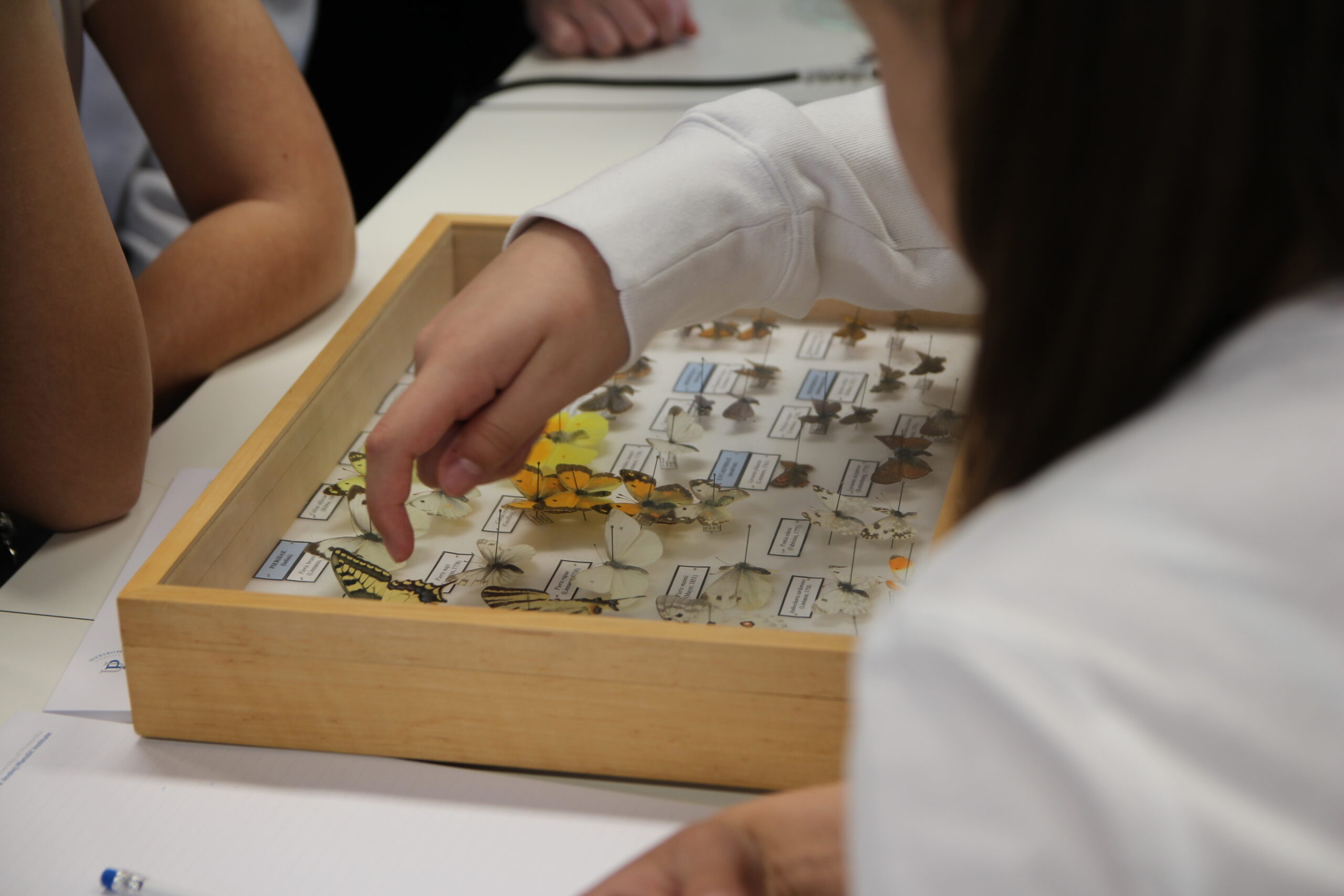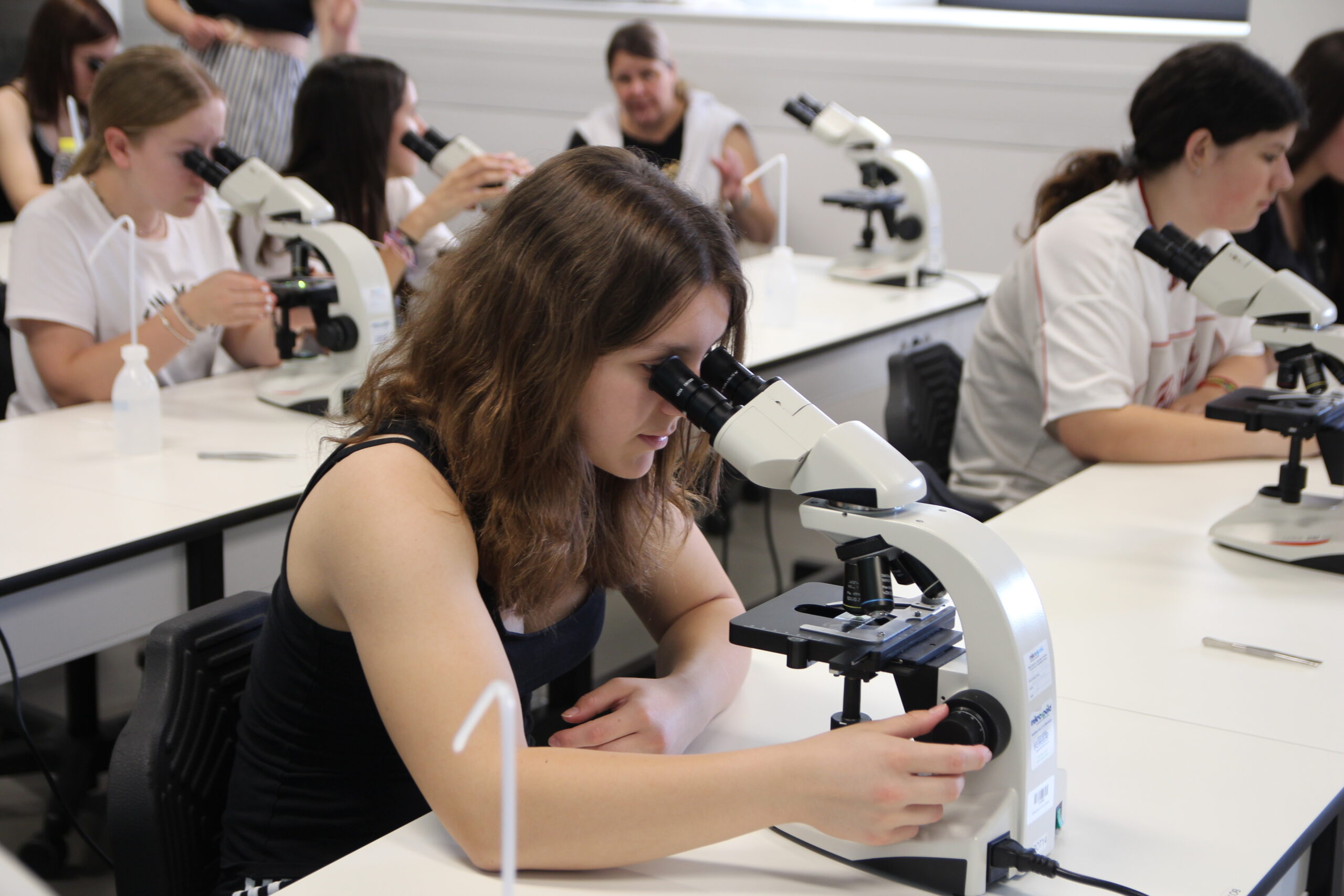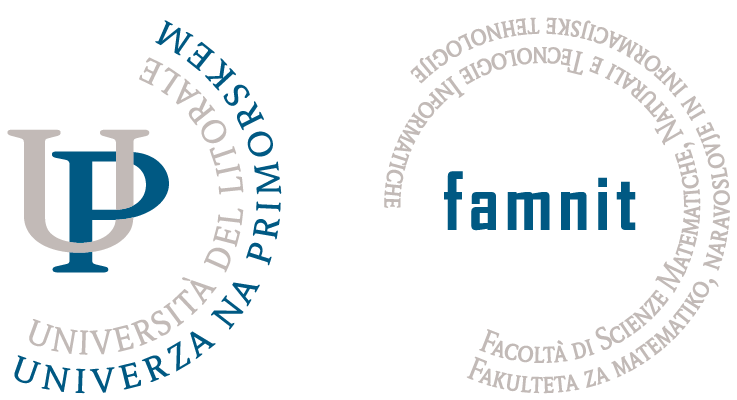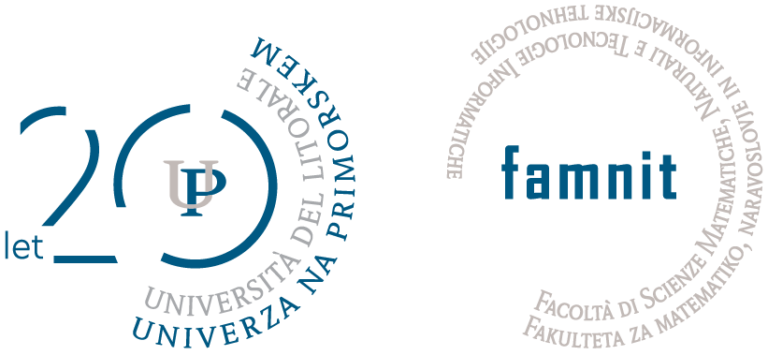At the beginning of the week, as part of the Natural Science Day, we welcomed 75 elementary school students and their teachers from Elvira Vatovec Prade Elementary School, which was held in Livade 1.0 building in Izola.
After the warm welcome of the first group of students on Monday, June 3, 2024, we divided them into two groups, each participating in two workshops conducted by the Department of Applied Natural Sciences UP FAMNIT.
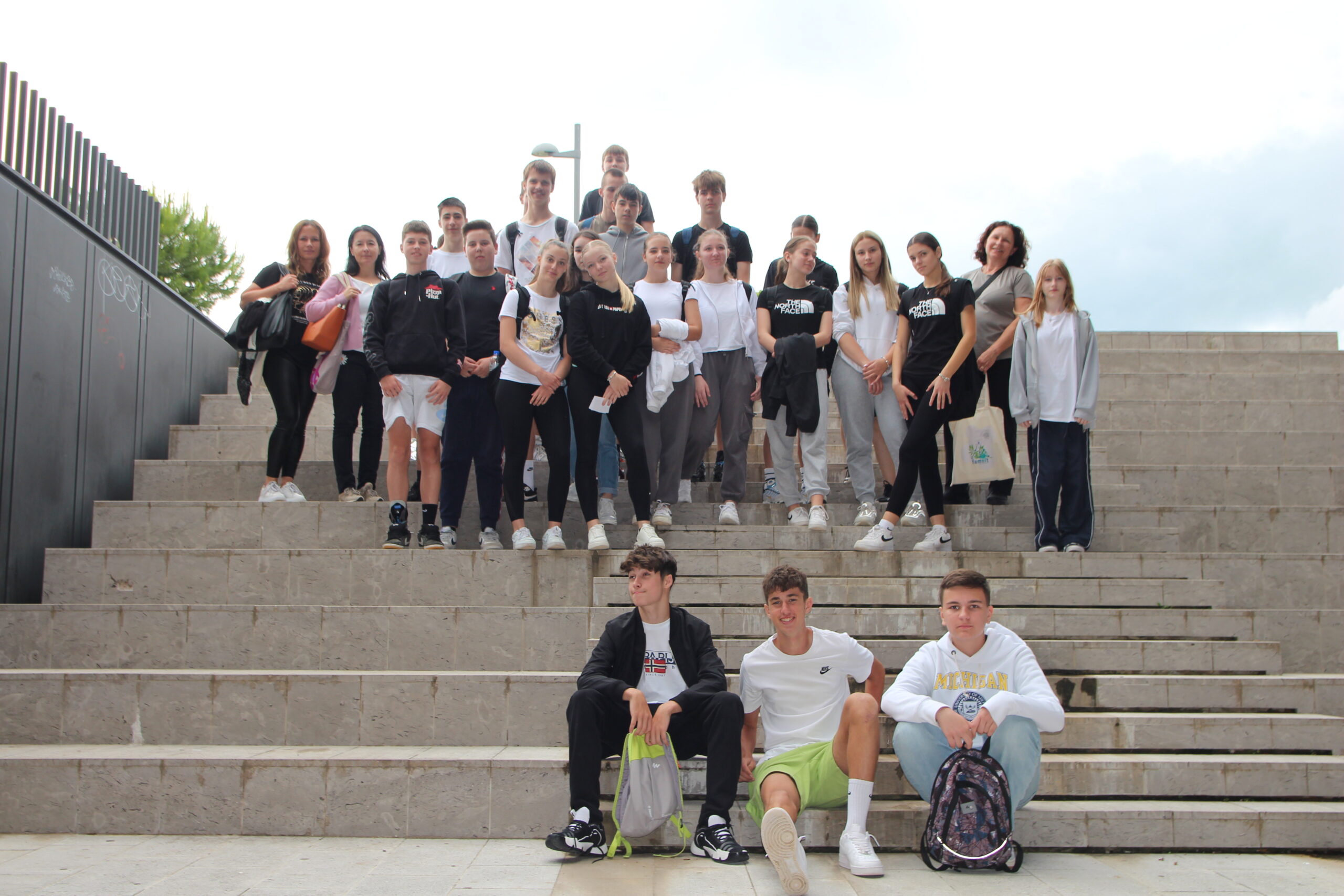
The first workshop, titled “Exploring Aromatic Plants in a Research-Oriented Way,” conducted by Assist. Prof. Dr. Alenka Baruca Arbeiter from the Department of Applied Natural Sciences UP FAMNIT, introduced students to the world of medicinal aromatic plants, which are an important part of Mediterranean biodiversity. They learned about valuable medicinal and aromatic plants such as helichrysum, karst savory, and lavender, their morphological characteristics, and methods for obtaining essential oil and hydrosol as well as other plant extracts. The workshop was conducted as part of the GDI project.
About 80 percent of agricultural and wild plants depend at least partially on pollination by insects. Another group familiarized themselves with pollinators through a lecture titled “Pollination – Invisible to the Eye, Yet Essential for Agriculture and Food,” which was explained by Assistant Petra Gabrovšek. The students obtained knowledge about the difference between pollination and fertilization, and at the end, they also prepared an experiment under a light microscope and stereo microscope.
The day after, on June 4, 2024, we welcomed another group of primary school students, who, together with their teachers, listened to interesting natural science topics prepared by the Department of Biodiversity at UP FAMNIT.
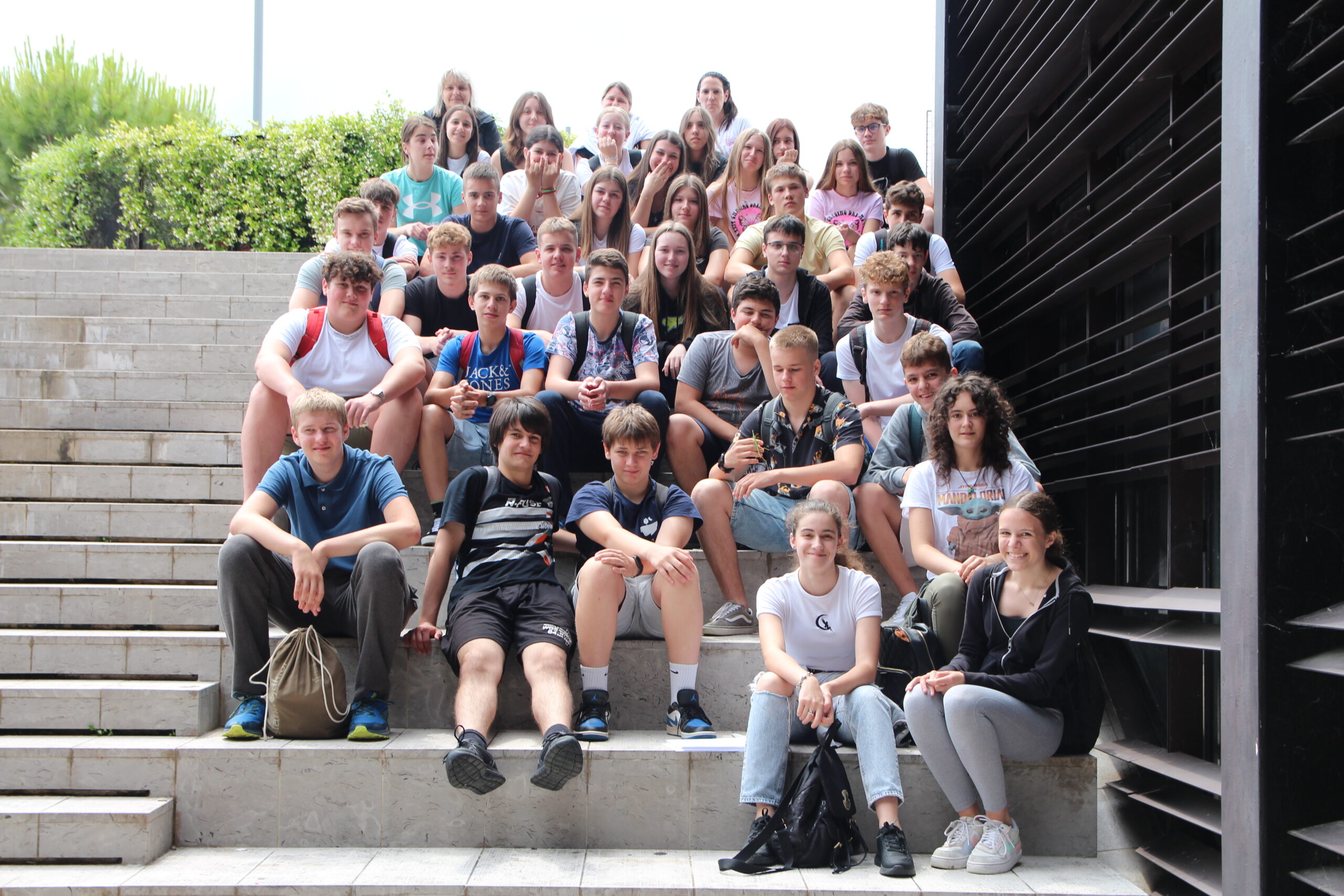
The first workshop was conducted by student Tina Hajdinjak, who, as part of the activity “Wildlife Detective: Revealing the Invisible Wildlife around You,” presented an innovative approach for monitoring biodiversity using modern genetic methods. Throughout the workshop, students acquired knowledge about field research, specifically learning how to obtain appropriate genetic samples from the environment or animals. This enabled the acquisition of data crucial for the conservation, management, and understanding of animal characteristics.
In the second workshop, conducted by Špela Možgan Nose, the students experimented with gathering and using data on the observation of wildlife, where the mobile application SRNA was introduced, developed as part of the Step Change project – aimed at gathering data on wildlife.
The last workshop was conducted by Assoc. Prof. Dr. Katarina Šoln from the Department of Biodiversity, titled “What Lies Beneath the Microscope?” where they learned about the operation of a light microscope.
